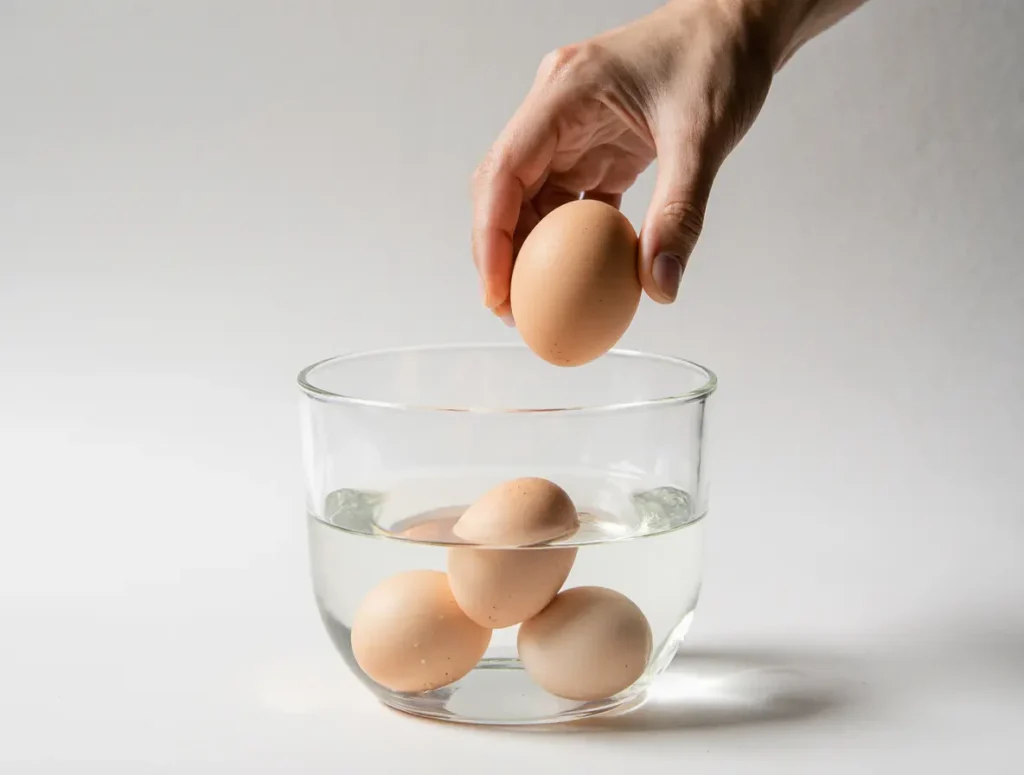Eggs are among the most common ingredients in kitchens around the world. But there’s always that moment of hesitation when you’re not sure whether that carton sitting in the fridge is still good. Do you risk it? Do you toss it? Or do you crack it and hope for the best?
Learning how to tell if eggs are bad can help you avoid foodborne illness, save money, and feel more confident about the meals you prepare. In this ultimate guide, we’ll walk you through simple methods to determine egg freshness, explain what to look (and smell) for, and even break down how storage plays a major role.
Table of Contents
Let’s dive in and crack this mystery wide open.
Why Knowing If Eggs Are Bad Really Matters
You might think that eating a bad egg isn’t a big deal, but the risks are real. Rotten eggs can harbor Salmonella, a type of bacteria that can cause serious food poisoning. Nausea, vomiting, stomach cramps, and diarrhea are just a few symptoms you might experience. In some cases, it can even lead to hospitalization.
But aside from health concerns, no one wants to ruin a delicious recipe with a spoiled egg. Just imagine preparing a cake, only to have it smell like rotten sulfur when it comes out of the oven. Yuck!
Like a detective on a case, learning to spot a bad egg means knowing what signs to look for—and what to trust.
Don’t Rely on Dates Alone
You see a date stamped on the egg carton: sell-by, best-by, or expiration. While these labels are helpful, they don’t always indicate whether the eggs inside are still safe to eat. In fact, eggs can often last weeks beyond these dates if properly stored.
Understanding the Labels:
- Sell-By Date: For retailers to know when to remove from shelves.
- Best-By Date: Peak quality, not safety.
- Expiration Date: Last recommended usage date.
The USDA notes that eggs can be safe 3-5 weeks after purchase, even if the date on the box has passed. That said, don’t rely on the date alone—it’s just a clue, not the whole story.
Think of it like checking your phone’s battery percentage: just because it says 10% doesn’t mean it’ll die right away, but you should start paying attention.
Use the Water Float Test
This is one of the easiest and most popular methods to check egg freshness. It’s quick, safe, and requires only a bowl of water.

How to Do It:
- Fill a bowl with cold water.
- Gently place your egg in the bowl.
- Watch what happens:
- Fresh egg: Sinks and lies flat.
- Slightly older egg: Stands upright.
- Spoiled egg: Floats to the top.
Why This Works:
Eggs have tiny pores that let air in over time. The older the egg, the more air inside, which makes it float.
It’s like filling a balloon slowly. At first, it sinks, but eventually, it becomes light enough to rise.
Crack It Open: Sight and Smell Don’t Lie
Still not sure? Crack the egg into a separate bowl (not directly into your cooking pan) to get a closer look and smell.
What to Look (and Smell) For:
- Fresh egg: Has no noticeable odor, the yolk is round, and the white holds together.
- Bad egg: Has a distinct, unpleasant sulfur smell. The yolk might be flat or broken, and the whites runny and watery.
If you’ve ever opened a gym bag after a week in the trunk, you know what that smell is like. Rotten eggs give off a similar vibe—it’s unmistakable.
Give It a Gentle Shake
Here’s a lesser-known trick: Hold the egg close to your ear and gently shake it.
What You’ll Hear:
- Fresh egg: Little to no sound.
- Bad egg: A sloshing or gurgling sound due to thinning of the yolk and white.
This isn’t a stand-alone test, but it adds a clue to your investigation.
Check the Shell for Slime or Cracks
Before you even get to the inside, inspect the shell. It might tell you all you need to know.
Warning Signs:
- Slimy shell: Indicates bacterial growth.
- Cracked shell: Can allow bacteria to enter.
- Powdery spots: Might be mold.
Feel the egg. If it feels sticky or looks unusual, play it safe and toss it.
Understand Proper Storage
Storing eggs properly is key to keeping them fresh longer. A badly stored egg will go bad much faster.

Tips for Storing Eggs:
- Always store eggs in the fridge, ideally at 40°F (4°C) or lower.
- Keep them in their original carton to prevent them from absorbing odors.
- Avoid keeping eggs in the fridge door where temperature fluctuates.
Think of eggs like flowers—keep them cool, dry, and away from strong smells, and they’ll last longer.
How Long Do Eggs Last?
Let’s break it down:
Refrigerated:
- Raw eggs in shell: 3–5 weeks
- Raw eggs (beaten): Use within 2 days
- Hard-boiled eggs: 1 week
Frozen:
- Eggs can be frozen if beaten first, lasting up to a year.
Labeling eggs with the date you bought or cracked them can take out the guesswork later on.
Follow Your Gut (Not Just Your Nose)
If all else fails, go with your instincts. If you’re unsure whether to eat an egg—don’t. Trust your senses. Fresh eggs should be nearly odorless, have a thick white, and a vibrant yolk.
As the saying goes, “When in doubt, throw it out.” It’s not worth the risk.
Conclusion
Knowing how to tell if eggs are bad isn’t about being paranoid—it’s about being prepared. Using simple tools like the float test, your nose, and a quick visual check can help keep your meals safe and your family healthy.
Eggs are affordable and nutritious, but not when they go bad. So the next time you question whether an egg is safe to eat, you’ll have the tools to make a confident decision.
FAQs
1. Can I still use eggs if the expiration date has passed?
Yes, as long as they were stored correctly and pass freshness tests like the float or smell check.
2. What does a bad egg smell like?
A rotten egg smells like sulfur or something spoiled—strong, pungent, and unpleasant.
3. Is a floating egg always bad?
Usually, yes. A floating egg has more air inside, which suggests it’s old. But crack it open to confirm.
4. Can I freeze raw eggs?
Yes, but beat them first and store them in a sealed container. Frozen eggs last up to a year.
5. How do I keep eggs fresh longer?
Store them in their original carton in the coldest part of the fridge, not in the door.

